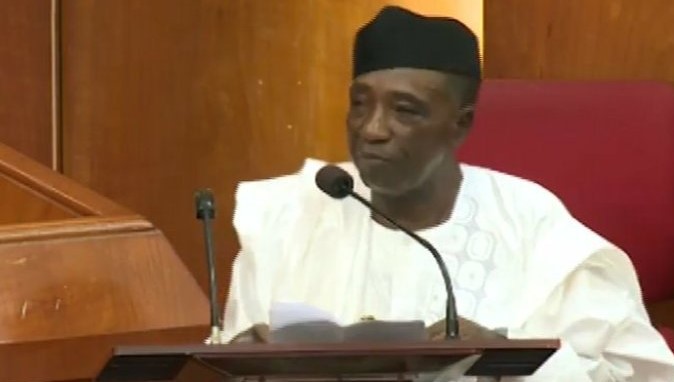The Minister of Agriculture and Rural Development, Sabo Nanono, has urged soil scientists to assist in educating agricultural extension officers on soil fertility management.

Nanono gave the advice on Saturday, December 5, 2020 in Abuja, at the “Experts dialogue”, in commemoration of World Soil Day (WSD) marked on Dec. 5, every year.
The dialogue, organised by the Nigeria Institute of Soil Science (NISS) in collaboration with the Food and Agriculture Organisation (FAO), was held against the 2020 WSD theme: ”Keep Soil Alive, Protect Soil Diversity”.
Nanono, who was represented by Shehu Bello, Director, Agriculture, Land and Climate Change Management Services, explained that educating the extension officers, would enable them advise farmers on inputs, good agronomic practices and soil health.
He stated that soil testing and survey should, as a matter of urgency, be carried out annually so that farmers are able to test their soil before the farming season.
The theme of the day, according to him, was important to the sustainability of agricultural practices and achievement of food security, emphasising that “without soil, we cannot have plants, without plants we cannot have food and without food we cannot have human existence.”
Mrs Adejoke Orelope-Adefulire, Senior Special Assistant to the President on Sustainable Development Goals (SDGs), said that the WSD was dedicated to highlight and emphasise the need to continuously promote good human activities, that provided healthy soil composition for more productive use.
Orelope-Adefulire identified some of the important roles of the soil in the ecosystem to include, the growing of trees, that shielded the sun’s rays which depletes the ozone layer, and supplies fresh air for a cleaner environment, especially for the production of quality food for human consumption.
She identified some of the priority targets under the SDGs to include, goals number 15, number 13, three and two, explaining that while goal 15 seeks to protect, restore and promote sustainable use of terrestrial ecosystem, goal 13 hinges on taking the right actions against climate change; and goal two focuses on ending hunger, achieving food security, improving nutrition and promoting sustainable agriculture.
“It is safe to say that only a nourished individual is to a large extent, guaranteed good health and well-being as envisaged in goal three,” she said, adding, “Therefore, it is pertinent to note that without a healthy soil, it will be nearly impossible to attain food security.
Orelope-Adefulire further said: “Food security will guarantee adequate food supply for human consumption thereby ending hunger, and make afforestation and tree planting efforts a success.”
She identified this year’s WSD theme as another wake-up call for all to work together to develop ideas that would ensure that “our soils are healthy”.
As the world entered the decade of action on SDGs, she noted, it now rests on everyone’s shoulders not to be left behind in taking proactive measures that would help sustain and improve our soil health.
By Felicia Imohimi
